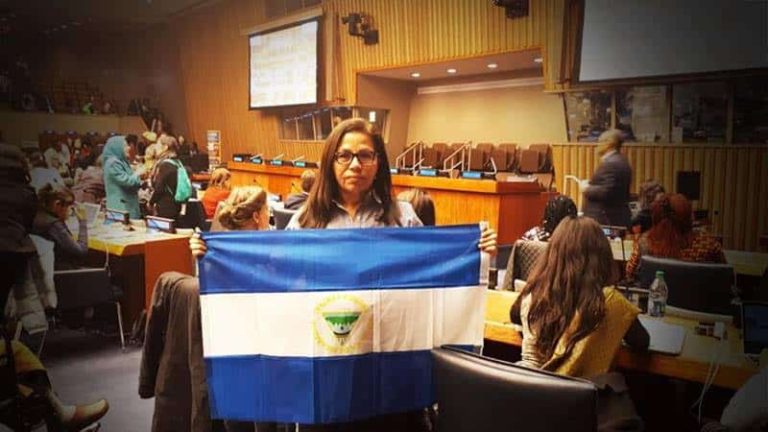12 de abril 2024

Children of Exile: The Births “Sowing Hope” in the Camp of Nicaraguan Farmers

PUBLICIDAD 1M
PUBLICIDAD 4D
PUBLICIDAD 5D
The exiled Nicaraguan activist recently received the Acampa Network for Peace and the Right to Refuge’s 2024 International Human Rights Award

To activist Haydee Castillo being awarded the 2024 Human Rights Award by the Acampa Network for Peace and the Right to Refuge, in their international category, simply means that once again the world “opens its eyes and turns them on Nicaragua.”
“We’re living in a context where receiving this type of recognition fills you with energy and strength to continue. Doors are opened to try everything possible and call attention to the situation that Nicaragua is experiencing,” stated Castillo in an interview with Confidencial, broadcast over their online news program Esta Noche.
The International Acampa Network, made up of 75 social, cultural, educational, community, and human rights organizations, announced the prizewinners on April 4, 2024. The Nicaraguan activist was named along with climate activist Greta Thunberg; Palestinian journalist Wael Al-Dahdouh; the United Nations Agency for Palestinian Refugees UNRWA; Palestinian filmmaker Bisan Owda; and Manuel Martin Garcia, public health spokesperson in Galicia, Spain.
The Ortega regime stripped Castillo of her right to nationality and a passport in 2023, and she currently lives as an exile in Costa Rica. She said winning the award represents an opportunity “to put Nicaragua in the center” of the international conversation about human rights violations.
From exile, Castillo continues advocating with the international community, demanding they turn their spotlight on the Nicaraguan crisis. “It’s not an easy task,” she admits.
“We were at the United Nations, and they told us it’s very hard to get Nicaragua put on the agenda with so many ongoing conflicts [in the world]. Now we have the problems between Ecuador and Mexico, and everyone turns their focus to that. That’s where our patient and incessant work comes in,” she asserted.
“Our aim is to have the international community take measures to remove the pillars that are still sustaining the dictatorship. In that sense, we’re engaged in an intense collective effort with the world’s financial structures so that they stop funding the dictatorship,” she explained.
As Nicaraguans mark six years since their country’s sociopolitical crisis exploded, Castillo stressed that opposition groups and human rights advocates, “need to present concrete proposals for a way out of the crisis.”
She explained that such proposals must contemplate a way to maintain and strengthen the political tissue within Nicaragua; remove the dictatorship’s financial leverage; contribute to the depolarization of society; establish a path for universal justice; and seek a collective political presence “that presents an alternative to Ortega’s power.”
“It’s disappointing how, right up to the present, the Ortega-Murillo regime has paid no price at all for so many barbarous actions, for so much criminality, for their crimes against humanity,” she underlined.
“The memory [of April] remains alive, no matter how much they want to impose a paper peace,” she concluded.
This article was published in Spanish in Confidencial and translated by Havana Times. To get the most relevant news from our English coverage delivered straight to your inbox, subscribe to The Dispatch.
PUBLICIDAD 3M
Confidencial es un diario digital nicaragüense, de formato multimedia, fundado por Carlos F. Chamorro en junio de 1996. Inició como un semanario impreso y hoy es un medio de referencia regional con información, análisis, entrevistas, perfiles, reportajes e investigaciones sobre Nicaragua, informando desde el exilio por la persecución política de la dictadura de Daniel Ortega y Rosario Murillo.
PUBLICIDAD 3D